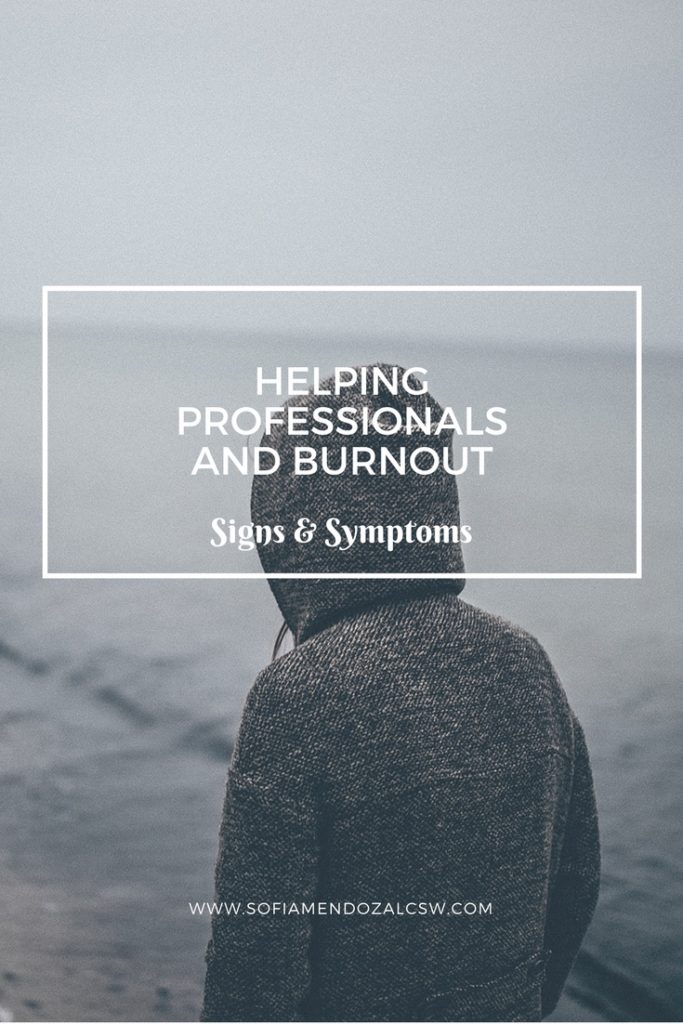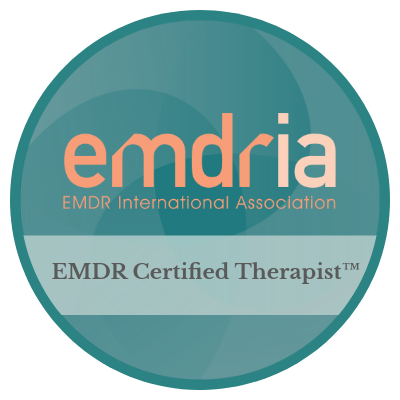It takes a special person with a great deal of compassion and heart to be in any of the helping professions. Here I’m talking about (although not limited to) social workers, therapists, nurses, doctors, caregivers, first aid and crisis responders, etc. Being a helping professional can be incredibly rewarding, while at the same time, emotionally taxing which can cause burnout. Pines and Aronson (1988) defines burnout as “a state of physical, emotional, and mental exhaustion caused by long-term involvement in emotionally demanding situations.” Burnout is characterized by three essential features: “emotional exhaustion, depersonalizations (general feeling of detachment, either personal or with reality), and feelings of ineffectiveness.”
Those who directly deal with responding to trauma or healing trauma, can also experience a state that is called Compassion Fatigue due to secondary or vicarious trauma. Compassion fatigue – is “a state of tension and preoccupation with traumatized patients by re-experiencing the traumatic events, avoidance/numbing… And persistent arousal associated with the patient.
Symptoms of burnout and compassion fatigue can include (and not limited to):
• Poor work performance, excessive absence, lack of interest in the work
• Emotional withdrawal from co-workers, dehumanization, or over-intellectualizing
• Sleep difficulties, fatigue, frequent illness (cold or flu)
• Irritability, anxiety, depression, guilt, helplessness
• Nightmares, anxiety, fear responses
• Poor concentration, self-doubt, fixation on traumas, confusion
Contributing factors associated with chronic burnout and compassion fatigue:
Ineffective coping such as poor self-care, substance abuse, and other risky behaviors.
Helping professional with a history of their own untreated personal trauma(s)
No sense of control over their work or helping those they work with
Lack of good supervision and/or administrative support.
Increasing job demands
Lack of training
Occurrence or Reoccurrence of psychiatric episodes of depression, anxiety, PTSD etc.
Increase in physical ailments or illnesses such as coronary heart diseases, imbalance of stress and cortisol levels.
Therapy can help you process the feelings that come up from being the holders of hope for your clients. A common symptom of working with people in challenging situations is not even having the words to express what it is we’re feeling. And put simply, emotions can be contagious. Helping professionals are highly at risk of feeling what others feel. In part, it’s what draws us to the profession. It’s also what can put us at such high risk for burnout.
You can take a self-test here to see where your compassion fatigue and burnout measures.
I have experience with being a direct mental health service provider for the Los Angeles County Department of Mental Health and can relate to the increasing demands of such a highly regarded and utilized system of care. I also have experience with providing clinical supervision to case managers, therapists, social workers and psychologists and am passionate about addressing their burnout and compassion fatigue.
Together we can assess your level of burnout and/or compassion fatigue and come up with a personalized self-care plan, assertiveness practice and if necessary, healing of your own traumatic experiences.
You can start this journey by calling me at (323) 351-1741 for an appointment.
If you’re looking for treatment focused on Burnout, I have Burnout Course and Workbook that I use with my clients who want focused Burnout Recovery sessions. It will help you understand burnout, the stress cycle, how to live a life full of meaning and linked to your values, how to manage negative thoughts and more. Find more information about it here.
If you’ve experienced vicarious or workplace trauma, I offer EMDR Trauma Intensives for my busy professionals with difficult schedules.
What are EMDR Intensives?
Deep and focused EMDR therapy sessions that go for several hours in a day or throughout a few consecutive days.
Benefits of EMDR Intensives
- Longer sessions provide uninterrupted depth and expedite the processing of disturbing memories
- Meets the scheduling needs of clients who cannot meet weekly for several months
- Process a memory from beginning to end
- Feel better quicker! Experience immediate relief from symptoms that have persisted for a long time
- Save time, money and gas. Our sessions are virtual and uninterrupted
EMDR Intensives are for you if:
- You’ve been in therapy for a while now and noticing that your sessions end right when you’re getting into the heart of your issue
- You know logically what you need to do, but your body still feels triggered and unsafe, and you can’t stop yourself from doing the same behaviors that cause problems for you
- Your relationships or work are suffering because of the overwhelm you feel
- You don’t have the time in your schedule to commit to months of weekly therapy, but you can take a day or two off for intensive sessions
- Your current therapist does not offer EMDR and you’re willing to take a small break from them. You can always go back to them after the intensive. EMDR works great as an adjunctive treatment.
If you’re curious about whether an EMDR Intensive might be right for your healing journey, let’s connect for a consultation. You can email me at sofia@sofiamendozalcsw.com to inquire about scheduling and pricing. Together, we can determine if this concentrated approach to trauma healing aligns with your needs and goals.
Remember — healing doesn’t always follow a linear weekly schedule. Sometimes, our most significant breakthroughs come when we create the space for focused, intentional work on the patterns and systems that have shaped us.
Read more about EMDR intensives here.




